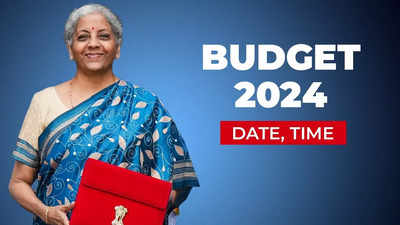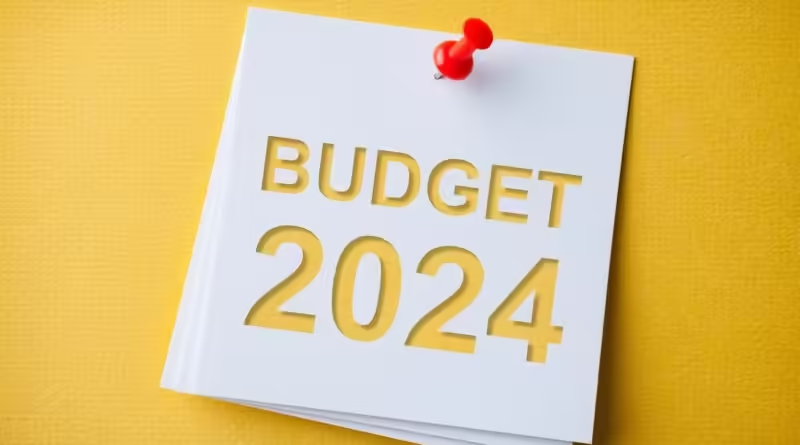The Road to budget 2024 date for Stakeholders
Introduction to Budget 2024 Date
The countdown to Budget 2024 is on, and stakeholders across various sectors are keenly anticipating the pivotal date when decisions will shape financial strategies for the upcoming year. As organizations prepare, setting a budget date becomes critical in ensuring that everyone involved can align their goals and resources effectively. This timeline isn’t just about numbers; it represents collaboration, foresight, and accountability among all parties invested in the process. So, what does it take to nail down this essential date? Let’s explore why establishing a clear budget for the 2024 date matters and how you can navigate this crucial phase with confidence.
Importance of Setting a Budget Date
Setting a budget date is budget 2024 date crucial for effective financial planning. It provides a clear timeline, ensuring that all stakeholders are aligned on expectations.
A specific date creates urgency. This motivates teams to prioritize tasks and streamline their efforts, ultimately leading to more efficient outcomes.
Moreover, establishing a budget date fosters accountability among stakeholders. When everyone knows the deadline, they are more likely to contribute actively and responsibly.
Having a set date also aids in resource allocation. Stakeholders can plan their activities around this timeframe, making it easier to manage resources effectively.
Additionally, it helps mitigate last-minute rushes that often lead to errors or oversights. By adhering to the schedule, organizations can focus on quality rather than speed.
This clarity enhances collaboration among team members as well; communication becomes smoother when everyone shares the same target timeline.
Factors to Consider When Choosing a Budget Date
Selecting a budget date requires careful thought. Timing plays a crucial role in ensuring that all stakeholders are available and engaged.
Consider key fiscal deadlines. Aligning your budget date with these can help streamline the process. It reduces stress and allows everyone to focus on their responsibilities effectively.
Incorporate stakeholder availability into your decision-making. Understanding when team members can contribute makes collaboration smoother. This involvement fosters ownership of the outcome.
Market conditions also matter. A date too close to economic shifts might lead to uncertainty or misalignment with financial goals.
Think about historical data from budg et 2024 dateprevious years. Analyze what worked well and what didn’t during those periods, as this information will inform better choices for 2024’s budget planning efforts.
Challenges Faced by Stakeholders in Setting a Budget Date
Setting a budget date can feel like navigating a minefield for stakeholders. Multiple interests often clash, making consensus difficult to achieve.
One key challenge is differing priorities among stakeholders. Each party may have unique goals that don’t always align with the overall budget strategy. This divergence can lead to prolonged discussions and delays.
Time constraints also play a crucial role. Stakeholders might be juggling various commitments, making it hard to pinpoint an ideal date for everyone involved. The urgency of fiscal deadlines adds pressure, complicating the scheduling process even further.
Moreover, communication barriers can create misunderstandings about expectations and responsibilities tied to the budget date. Clear communication remains essential yet elusive in many organizations.
External factors such as economic fluctuations or regulatory changes add another layer of unpredictability when selecting a budget date, leaving stakeholders wary of the implications of their plans.
Strategies for Achieving the Budget 2024 Date
Setting a clear timeline is essential for achieving the budget 2024 date. Stakeholders should establish milestones that lead to the final deadline. This creates accountability and ensures everyone stays on track.
Engaging in regular communication helps identify potential roadblocks early. Weekly check-ins can provide updates and foster collaboration among team members.
Leveraging technology can streamline processes significantly. Consider using budgeting software to manage financial data efficiently, ensuring transparency across all departments.
Involving key stakeholders throughout the planning process cultivates a sense of ownership. Their insights can drive better decision-making and enhance commitment to timelines.
Remain flexible but focused on your goals. Adjustments may be necessary, yet keeping an eye on the ultimate deadline will guide efforts toward the successful completion of budget preparations for 2024.
Benefits of Having a Set Budget Date for Stakeholders
Having a set budget date creates clarity for all stakeholders involved. When everyone knows the timeline, it fosters accountability and encourages timely contributions.
A fixed date also enhances collaboration among departments. Stakeholders can align their strategies, ensuring resources are allocated effectively and efficiently.
With a clear deadline, organizations can better monitor progress. Regular check-ins become more purposeful, allowing teams to adjust plans as necessary without veering off course.
Moreover, establishing a budget date can improve communication. It sets expectations about when input is needed, helping prevent misunderstandings or last-minute rushes that can derail efforts.
Stakeholders benefit from increased confidence in decision-making processes too. With a structured timeline in place, they feel empowered to advocate for their needs while remaining aligned with organizational goals.
Conclusion and Call to Action
The journey toward a successful budget 2024 date hinges on collaboration and proactive planning. Every stakeholder plays a crucial role in shaping the financial landscape.
It’s time to harness collective insights and foster open communication. By engaging all parties involved, you not only enhance transparency but also increase commitment to shared goals.
Now is the moment for stakeholders to step forward. Bring your ideas, concerns, and solutions to the table. This collaborative spirit will drive more effective decision-making.
Let’s prioritize setting that budget 2024 date together. The benefits of doing so are immense—streamlined processes, clearer objectives, and an empowered team ready to tackle challenges head-on.
Take action today! Embrace this opportunity for greater involvement in the budgeting process and watch how it transforms outcomes for everyone involved. Your voice matters; let it be heard loud and clear!
budget 2024 date
The budget 2024 date is a pivotal milestone for organizations and governments alike. Establishing this timeline sets the stage for financial planning, resource allocation, and strategic goal setting.
A well-defined budget date allows stakeholders to align their priorities effectively. It creates a roadmap that guides discussions and decisions leading up to the final approval of resources.
Moreover, it promotes accountability within teams. When everyone knows the deadline, there’s an increased sense of urgency to prepare accurate forecasts and analyses.
Navigating through various departments budget 2024 date during this period can be complex. Yet having set dates helps streamline communication among all parties involved in the budgeting process.
Organizations must remain adaptable as they approach this significant occasion while keeping stakeholder needs front and center throughout the journey toward budget 2024.
Importance of Stakeholders in the Budget Process

Stakeholders play a critical role in the budget process. They bring diverse perspectives and expertise that enrich discussions and decision-making.
Their involvement ensures that various interests and needs are considered. This diversity can lead to more balanced and effective budgeting outcomes. Stakeholders help identify priorities, allocate resources wisely, and spot potential issues early on.
Moreover, engaging stakeholders fosters transparency. When they see their input valued, it builds trust between all parties involved. Transparency encourages accountability throughout the budgeting cycle.
Additionally, collaboration with stakeholders enhances communication across departments or sectors. This synergy can streamline processes and eliminate redundancies often found in budget planning.
Having stakeholders actively participate strengthens ownership of the final budget decisions while paving the way for successful implementation strategies down the line. Their insights make budgets not just numbers but actionable plans designed to meet shared goals.
Challenges Faced by Stakeholders in the Budget Process
Stakeholders encounter various challenges during the budget process. One significant issue is communication breakdown. Misunderstandings can arise between departments, leading to discrepancies in budget allocations.
Another hurdle is balancing competing priorities. Different stakeholders often have diverse interests and needs, making it difficult to reach a consensus. This conflict can result in delays or insufficient funding for critical projects.
Additionally, data accuracy poses a challenge. Stakeholders rely on precise information to make informed decisions. If data is outdated or flawed, it could lead to poor financial planning.
Time constraints further complicate matters as stakeholders juggle multiple responsibilities while trying to meet tight deadlines for budget submissions.
Changes in regulations can create uncertainty. Stakeholders must adapt quickly to new rules that may impact their budgeting strategies and forecasts significantly.
Strategies for Successful Stakeholder Involvement
Effective stakeholder involvement is essential for a successful budget process. First, communication is key. Regular updates and open lines of dialogue foster trust and collaboration.
Next, establish clear roles and responsibilities. When stakeholders understand their contributions, they are more likely to engage actively in discussions.
Incorporating feedback mechanisms also plays a vital role. Encourage stakeholders to share insights and suggestions throughout the budgeting phase. This inclusivity can lead to innovative solutions that may not have been considered otherwise.
Facilitating workshops or brainstorming sessions can further enhance participation. These interactive environments stimulate creativity and allow diverse perspectives to emerge.
Recognize achievements along the way. Celebrating milestones builds motivation and reinforces commitment among all parties involved in shaping the budget 2024 date.
Achieving Efficient and Effective Budget Planning with Stakeholders
Effective budget planning hinges on collaboration with stakeholders. Engaging these key players early fosters transparency and trust.
Open communication channels are essential. Regular meetings encourage input, ensuring diverse perspectives shape the financial plan. This involvement can lead to innovative solutions that might otherwise be overlooked.
Utilizing collaborative tools streamlines processes. Digital platforms facilitate real-time updates, allowing stakeholders to track progress effortlessly. This keeps everyone in sync and motivated.
Additionally, establishing clear roles helps streamline decision-making. When each stakeholder understands their responsibilities, the planning process becomes more efficient.
Recognizing contributions is also vital for maintaining morale and commitment among team members. Celebrating milestones together strengthens bonds and promotes future cooperation in achieving budget goals.
budget 2024 date
Setting a budget 2024 date is vital for organizations and stakeholders. It establishes a clear timeline for financial planning and resource allocation. This clarity fosters accountability and engagement from all involved parties.
Knowing the specific date helps teams align their goals with fiscal realities. It encourages proactive discussion among departments, leading to more informed decisions.
Additionally, having a set date can improve collaboration between finance teams and other stakeholders. When everyone understands the schedule, it streamlines communication and reduces last-minute surprises.
External factors also play into this decision-making process. Economic conditions, legislative changes, or industry trends may influence the chosen budget 2024 date significantly.
Being strategic about timing ensures that various perspectives are considered early on in the planning phase. Stakeholders benefit from an organized approach rather than scrambling to meet deadlines at the last minute.
Conclusion: Embracing Collaborative Efforts for a Better Future Budget

The path to achieving a successful budget 2024 date is paved with collaborative efforts among stakeholders. Each participant plays a crucial role in ensuring that the process runs smoothly and effectively. By working together, sharing insights, and addressing challenges head-on, stakeholders can create a comprehensive plan that serves everyone’s interests.
Engaging all parties fosters transparency and trust. It allows for diverse perspectives to shape the budget, leading to more innovative solutions tailored to community needs. The involvement of various stakeholders not only enhances accountability but also encourages buy-in from all sectors affected by financial decisions.
To navigate potential hurdles such as differing priorities or communication barriers, establishing clear channels for dialogue is essential. Regular meetings can help align goals and ensure everyone remains on track toward meeting the budget 2024 date.
Embracing collaboration will lead to a budget 2024 date well-rounded budget strategy that reflects collective aspirations. Working together ensures a brighter fiscal future where resources are allocated efficiently—benefiting both current demands and long-term visions.
As we move forward into this budget 2024 date budgeting season, let us focus on unity and cooperation among all involved parties. Together we can pave the way for an effective budgeting process in 2024 that meets our shared objectives while supporting sustainable growth.
